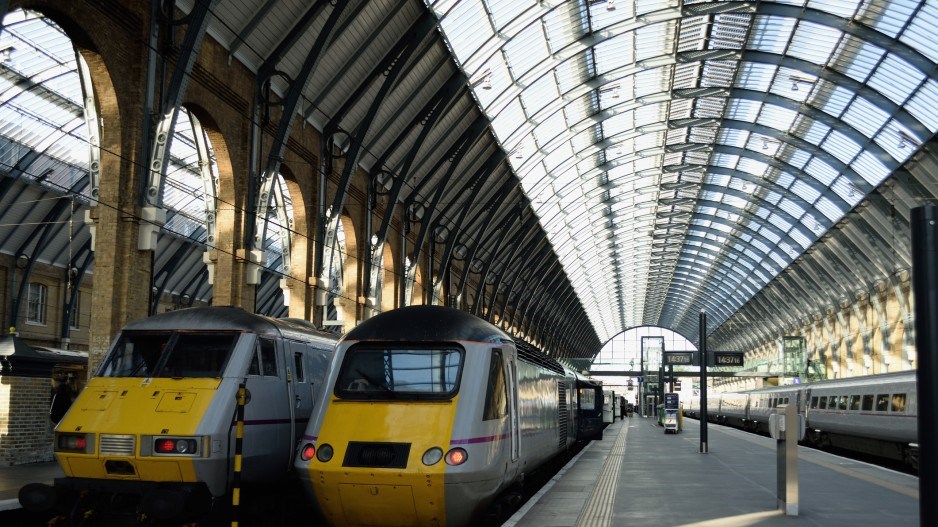Many a BC Ferries passenger can lament the spotty mobile coverage over the Georgia Strait that leaves streaming services buffering non-stop. Unless a well-prepped traveller downloads episodes of Stranger Thingsor Squid Game onto their phone ahead of the voyage, there’s little chance of watching a TV show on their own device.
Now, some made-in-B.C. tech is making its way onto transportation systems with the goal of ensuring passengers can stream shows without interruption as they travel far distances by train, plane or ship.
“On a train, you typically have a cellular connection that is being delivered to the train and the train itself then has an onboard Wi-Fi. And you can have 600 people all trying to get online, all going through essentially a really small straw,” said Siegfried Luft, CEO of Vancouver-based Netskrt Systems Inc.
“If everybody were to try and stream … Netflix, Amazon, whatever — there's just not enough capacity.”
His company launched a trial in June that sees British rail service London North Eastern Railway Ltd. (LNER) tapping Netskrt’s tech to ensure buffering problems don’t plague passengers travelling between London and Edinburgh.
Netskrt is eliminating bandwidth bottlenecks in a way that might be compared to how an individual downloads an episode of Stranger Things in advance of a trip.
In this case, though, a Netskrt device on board the train essentially stores episodes from the streaming service ITV Hub, and then delivers those episodes directly to train passengers logged into LNER’s Wi-Fi.
Take, for example, a Vancouverite watching the latest episode of The Mandalorian on Disney+. Chances are the show isn’t being streamed directly from servers based at Walt Disney Co.’s (NYSE:DIS) headquarters in California.
Instead, it’s being delivered to users through what’s known as a content delivery network (CDN) that is based in B.C. That might be a data centre or a facility run by a telecom provider like Telus Corp. (TSX:T).
But if one were to pause that episode, take a three-hour drive down the I-5 and then resume watching, the show is going to be delivered via a different CDN in Seattle.
In the case of Netskrt, passengers don’t have to use their mobile data or potentially weak Wi-Fi to access a streaming show from a faraway CDN as the train makes its way through the country. The aforementioned Netskrt device on board the train is providing those bits of data, instead.
And as a train pulls into stations and connects to ITV Hub’s library once again, passengers can access any new titles that may have just dropped.
“The system is working I daresay better than I expected,” Luft said, adding the company is able to collect viewing data on the train to determine what’s most popular among passengers.
The CDN component of the company’s business model partly depends on accurately predicting which titles customers are interested in watching.
Part of the inspiration came as Luft, also the founder of B.C. internet service provider (ISP) Beacon Wireless Inc., was thinking about how dramatically internet consumption has changed since the 2010s.
“Go back seven, eight years ago and my average subscriber was sucking down a couple of gigs a month,” he said, referring to those using Beacon as their ISP.
“Today, they're more like 300-400 gigs a month. … You can take one look at it: It's all video.”
And Beacon, which also services small hotels on the southern Gulf Islands, has faced capacity issues at times as guests buckled down for the evening.
“You've got 20 people all trying to stream videos of some sort in the evening and it just fills up the pipes,” Luft said.
“There's a lot of places where Wi-Fi is offered and as soon as you get even a few dozen people doing the same thing at the same time, it's really hard to keep up.”
He said this technology, which will be piloted for another few months before Luft expects to secure LNER as a customer, can also be applied to markets like air travel, cruise ships or oil rigs.




